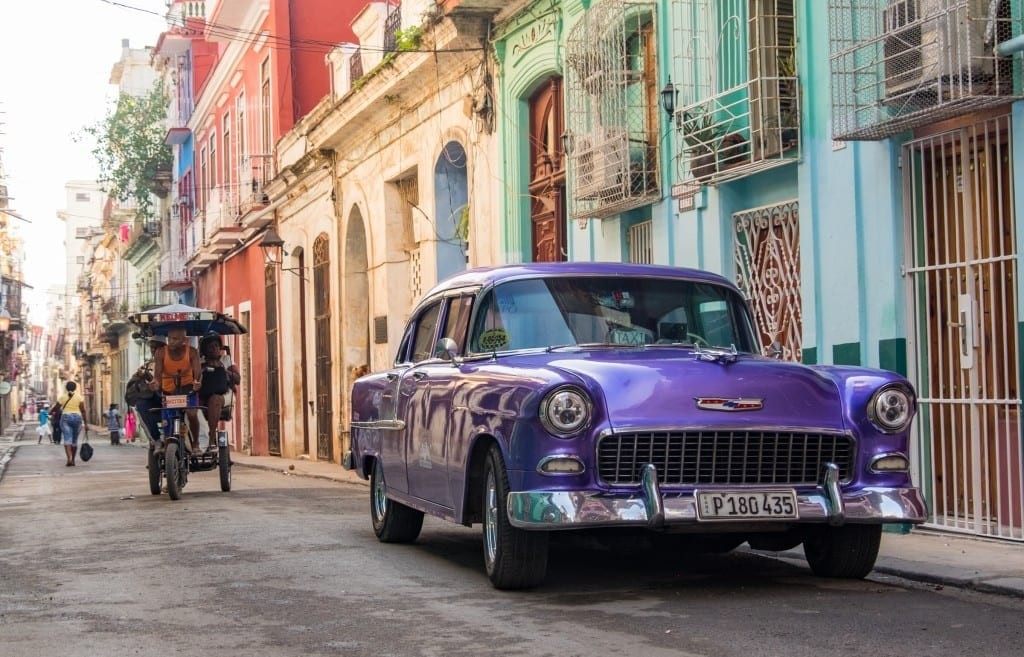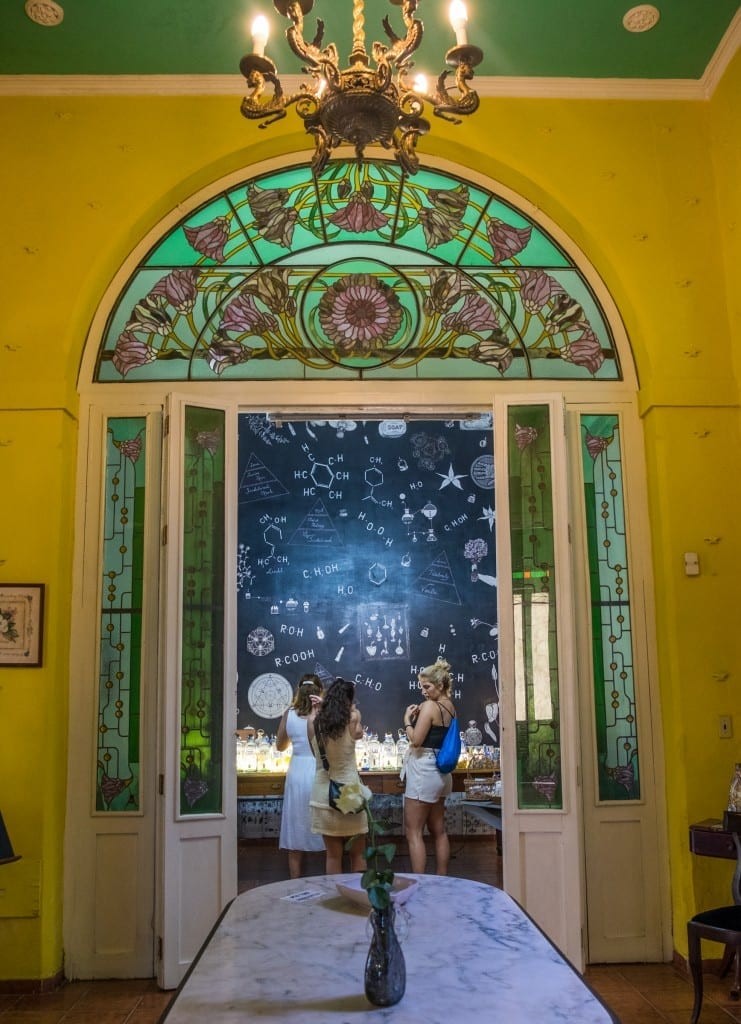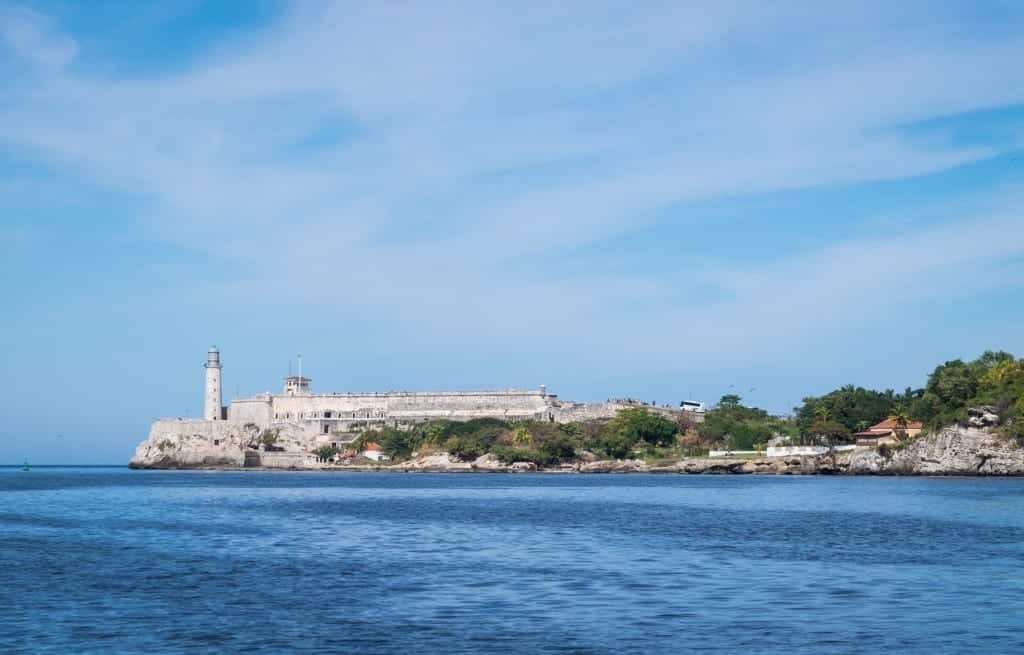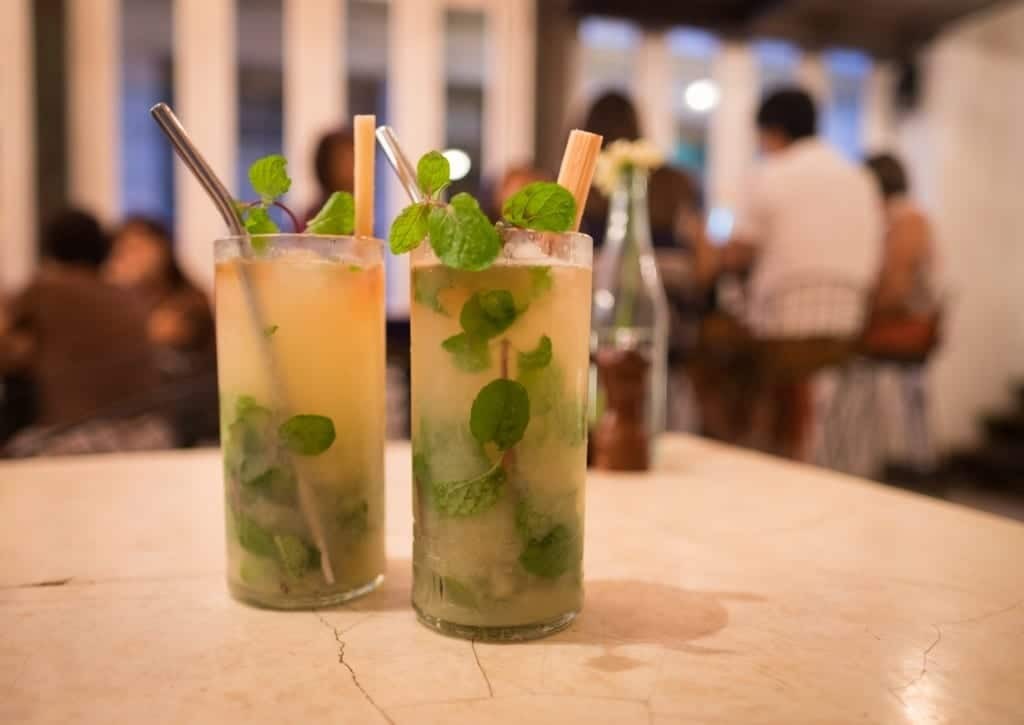Planning a trip to Havana, Cuba as an American citizen? You might be wondering, “Can Americans Travel To Havana?” The answer is yes! Despite the complex history between the United States and Cuba, it is indeed possible for US citizens to experience the vibrant culture, rich history, and stunning beauty of Havana. TRAVELS.EDU.VN is here to guide you through the process, ensuring your trip is both legal and unforgettable. From obtaining the necessary travel documents to navigating financial restrictions, we’ll cover everything you need to know for a smooth and enriching journey to Havana, with amazing cultural immersion and historical tourism opportunities.
1. Understanding the Legalities: Can Americans Really Travel to Havana?
Yes, Americans can travel to Havana, but it’s essential to understand the regulations set by the U.S. government. The U.S. Treasury Department’s Office of Foreign Assets Control (OFAC) requires Americans traveling to Cuba to do so under a general license for authorized travel, ensuring legal travel tips and compliance. While tourism isn’t strictly permitted, there are 12 categories of authorized travel that cover most travel purposes.
1.1. The 12 Categories of Authorized Travel
These categories outline the permissible reasons for Americans to visit Cuba. They include:
- Family visits: Traveling to see relatives in Cuba.
- Official business: Conducting business on behalf of the U.S. government, foreign governments, or intergovernmental organizations.
- Journalistic activity: Engaging in news reporting or journalism.
- Professional research: Conducting professional research or attending professional meetings.
- Educational activities: Participating in educational programs or exchanges.
- Religious activities: Engaging in religious activities or travel.
- Public performances: Participating in public performances, workshops, or competitions.
- Support for the Cuban people: Engaging in activities that support the Cuban people and promote human rights.
- Humanitarian projects: Working on humanitarian projects in Cuba.
- Activities of private foundations: Conducting activities for private foundations or research institutes.
- Exportation of information: Exporting or importing informational materials.
- Certain export transactions: Engaging in export transactions that may be considered for authorization.
1.2. The “Support for the Cuban People” Category
For most travelers, the “Support for the Cuban People” category is the easiest way to legally visit Havana. This category requires you to engage in activities that directly benefit the Cuban people, like staying in private accommodations (casas particulares), eating at privately owned restaurants (paladares), and visiting local businesses. TRAVELS.EDU.VN can help you plan an itinerary that aligns with this category, ensuring you meet the requirements while enjoying your trip to Havana, with the best travel regulations and itinerary compliance.
 Colorful vintage car in Havana, reflecting the city's vibrant culture and history.
Colorful vintage car in Havana, reflecting the city's vibrant culture and history.
1.3. Navigating Travel Restrictions
While the “Support for the Cuban People” category offers a straightforward path to legal travel, it’s crucial to avoid activities that primarily benefit the Cuban government. This includes staying at government-owned hotels or frequenting establishments on the U.S. State Department’s restricted list. TRAVELS.EDU.VN provides up-to-date information on these restrictions, helping you make informed choices and enjoy Havana responsibly.
2. Planning Your Trip: A Step-by-Step Guide with TRAVELS.EDU.VN
Planning a trip to Havana involves several key steps, from obtaining a visa to arranging accommodations and transportation. TRAVELS.EDU.VN simplifies this process, offering expert guidance and resources to ensure a seamless experience.
2.1. Securing a Cuban Visa
All travelers to Cuba, including Americans, need a Cuban visa, also known as a tourist card. This card can be obtained through various channels, depending on your travel route.
- Direct Flights from the U.S.: If you’re flying directly from the United States, you can typically purchase the “pink tourist card” at the airport before your flight. Airlines like American Airlines and JetBlue offer this service.
- Flights via Other Countries: If you’re flying to Cuba via another country, such as Mexico or Canada, you’ll need the “green tourist card.” This can be purchased at the departure airport in the connecting country.
TRAVELS.EDU.VN partners with reputable visa services to assist you in obtaining your Cuban visa, ensuring accuracy and efficiency. We provide detailed instructions and support, making the visa application process stress-free.
2.2. Booking Flights and Accommodations
With direct flights available from several U.S. cities, getting to Havana is easier than ever. Cities like Miami, New York, and Fort Lauderdale offer nonstop flights to Havana’s José Martí International Airport.
For accommodations, TRAVELS.EDU.VN recommends staying in casas particulares, which are private homestays run by Cuban families. These offer an authentic cultural experience and directly support the local economy. We can help you find and book reputable casas particulares that meet your needs and preferences.
2.3. Crafting an Itinerary that Supports the Cuban People
To comply with the “Support for the Cuban People” category, your itinerary should include activities that benefit local businesses and individuals. This could include:
- Dining at Paladares: Enjoying meals at privately owned restaurants that serve authentic Cuban cuisine.
- Visiting Local Markets: Exploring local markets and purchasing handicrafts and souvenirs directly from artisans.
- Taking Guided Tours: Hiring local guides for walking tours of Havana’s historic neighborhoods or excursions to nearby attractions.
- Attending Cultural Events: Experiencing Cuban music, dance, and art performances at local venues.
TRAVELS.EDU.VN curates personalized itineraries that align with the “Support for the Cuban People” category, ensuring your trip is both enriching and compliant with U.S. regulations.
 Historic buildings and architecture in Old Havana, showcasing the city's colonial past.
Historic buildings and architecture in Old Havana, showcasing the city's colonial past.
3. Managing Your Finances in Havana: Essential Tips for Americans
One of the biggest challenges for Americans traveling to Havana is managing finances. Due to U.S. sanctions, American credit and debit cards do not work in Cuba. This means you’ll need to bring enough cash to cover all your expenses.
3.1. Bringing Cash: USD vs. Euros
While U.S. dollars are accepted in Cuba, it’s often recommended to bring Euros instead. This is because Cuban banks typically charge a higher commission for exchanging USD. However, exchange rates can fluctuate, so it’s best to check current rates before your trip.
TRAVELS.EDU.VN provides up-to-date information on currency exchange rates and advises you on the best options for managing your money in Havana.
3.2. Exchanging Currency
Currency exchange can be done at Cuban banks or cadecas (exchange houses). However, lines can be long, so it’s best to exchange money at your hotel or casa particular. They often offer competitive rates and can save you time and hassle.
TRAVELS.EDU.VN can arrange for currency exchange services at your accommodations, ensuring you have access to Cuban currency without any inconvenience.
3.3. Budgeting for Your Trip
Havana can be surprisingly affordable, but it’s essential to budget carefully. Here’s a breakdown of typical expenses:
| Expense | Average Cost (USD) | Notes |
|---|---|---|
| Accommodation | $30-80 per night | Casas particulares offer the best value and cultural experience. |
| Meals | $15-30 per day | Paladares offer delicious and affordable Cuban cuisine. |
| Transportation | $10-20 per day | Taxis are the most convenient way to get around, but negotiate the price beforehand. |
| Activities | $20-50 per day | Guided tours, cultural events, and entrance fees. |
| Miscellaneous | $10-20 per day | Souvenirs, drinks, and unexpected expenses. |
| Daily Total | $85-180 | This is an estimate and can vary depending on your spending habits. |
TRAVELS.EDU.VN provides detailed budgeting tools and resources to help you plan your expenses and avoid running out of money during your trip.
3.4 Safeguarding Your Funds
Since you’ll be carrying a substantial amount of cash, it’s crucial to take precautions to protect your money. Consider using a travel scarf with a hidden pocket or a portable safe to store your valuables securely. Split your money into different stashes and conceal them in various locations to minimize the risk of loss or theft.
4. Staying Connected: Internet Access in Havana
Internet access in Havana can be limited and unreliable. While Wi-Fi is available in some hotels, parks, and public areas, it requires a Nauta card, which can be purchased from Etecsa stores.
4.1. Purchasing Nauta Cards
Nauta cards provide temporary access to Cuba’s Wi-Fi network. They come in various denominations, typically offering one or five hours of internet access. You’ll need to scratch off the card to reveal the username and password, then enter them on the Wi-Fi login page.
TRAVELS.EDU.VN can assist you in purchasing Nauta cards upon arrival in Havana, saving you time and effort.
4.2. Using Mobile Data
American mobile phone plans typically do not work in Cuba, and roaming charges can be exorbitant. It’s best to disable data roaming and rely on Wi-Fi for internet access.
TRAVELS.EDU.VN provides information on local SIM card options and data packages, allowing you to stay connected without incurring high roaming fees.
4.3. Digital Detox
Given the limited internet access, consider embracing a digital detox during your trip to Havana. Disconnect from social media, put away your devices, and immerse yourself in the local culture.
 A street scene in Havana with people, cars, and colorful buildings under a bright sky.
A street scene in Havana with people, cars, and colorful buildings under a bright sky.
5. Exploring Havana: Must-See Attractions and Activities
Havana is a city brimming with history, culture, and charm. From its cobblestone streets to its vibrant music scene, there’s something for everyone to enjoy.
5.1. Old Havana (Habana Vieja)
A UNESCO World Heritage site, Old Havana is a treasure trove of colonial architecture, historic squares, and lively street life. Explore iconic landmarks like the Plaza de Armas, the Havana Cathedral, and the Castillo de la Real Fuerza.
TRAVELS.EDU.VN offers guided walking tours of Old Havana, led by knowledgeable local experts who bring the city’s history to life.
5.2. Vedado
Known for its art deco architecture, upscale hotels, and vibrant nightlife, Vedado is a modern contrast to Old Havana’s colonial charm. Stroll along the Malecón, visit the Hotel Nacional, and explore the Plaza de la Revolución.
TRAVELS.EDU.VN can arrange for private transportation to Vedado and recommend the best hotels, restaurants, and cultural attractions in the area.
5.3. Centro Habana
A bustling residential neighborhood, Centro Habana offers a glimpse into everyday Cuban life. Wander through its narrow streets, admire its colorful buildings, and soak up the local atmosphere.
TRAVELS.EDU.VN provides guided tours of Centro Habana that focus on cultural immersion and community engagement, ensuring you have an authentic experience.
5.4. Other Popular Attractions
- The Malecón: A scenic waterfront promenade that stretches for miles along Havana’s coastline.
- The Museo de la Revolución: A museum dedicated to the Cuban Revolution, housed in the former Presidential Palace.
- The Fábrica de Arte Cubano: A cultural center that showcases Cuban art, music, and film.
- The Tropicana Club: A legendary cabaret that offers a dazzling display of Cuban music and dance.
TRAVELS.EDU.VN can arrange for tickets, transportation, and guided tours of these and other popular attractions, ensuring you make the most of your time in Havana.
6. Respecting Cuban Culture: Tips for Responsible Travel
As a visitor to Havana, it’s important to be mindful of Cuban culture and customs. Here are some tips for responsible travel:
- Learn Basic Spanish Phrases: While many Cubans speak English, knowing a few basic Spanish phrases will enhance your interactions and show respect for the local language.
- Dress Modestly: Dress respectfully when visiting religious sites or attending cultural events.
- Be Mindful of Noise Levels: Keep noise levels down in residential areas, especially at night.
- Avoid Political Discussions: Refrain from engaging in political discussions or criticizing the Cuban government.
- Support Local Businesses: Patronize local businesses, such as casas particulares, paladares, and artisan shops.
- Be Generous with Tips: Tipping is customary in Cuba, especially in the tourism industry.
- Ask Permission Before Taking Photos: Always ask permission before taking photos of people or private property.
7. Addressing Common Concerns and Misconceptions
Many Americans have concerns and misconceptions about traveling to Cuba. TRAVELS.EDU.VN addresses these concerns, providing accurate information and reassurance.
7.1. Safety
Havana is generally a safe city for tourists. However, petty crime can occur, so it’s essential to take precautions:
- Be Aware of Your Surroundings: Stay vigilant and be aware of your surroundings, especially in crowded areas.
- Avoid Walking Alone at Night: Avoid walking alone in poorly lit areas at night.
- Keep Valuables Secure: Keep valuables secure and avoid displaying expensive jewelry or electronics.
- Use Reputable Taxis: Use reputable taxis and agree on the fare before starting your journey.
TRAVELS.EDU.VN provides safety tips and resources to help you stay safe and secure during your trip to Havana.
7.2. Political Restrictions
While there are political restrictions on travel to Cuba, they primarily affect how you spend your money and what activities you engage in. By complying with the “Support for the Cuban People” category, you can legally visit Havana and enjoy its cultural attractions without any issues.
TRAVELS.EDU.VN ensures you’re fully informed about the political restrictions and provides guidance on how to comply with U.S. regulations.
7.3. Cultural Differences
Cuba has a unique culture that may differ from what you’re used to. Be open-minded, respectful, and willing to embrace new experiences.
TRAVELS.EDU.VN provides cultural sensitivity training and resources to help you understand and appreciate Cuban culture.
 A band playing music in Havana, reflecting the city's vibrant and lively music scene.
A band playing music in Havana, reflecting the city's vibrant and lively music scene.
8. Preparing for Your Trip: Packing Essentials
Packing for a trip to Havana requires careful consideration. Here are some essential items to bring:
- Cash: Bring enough cash to cover all your expenses, as American credit and debit cards do not work in Cuba.
- Travel Insurance: Travel insurance is required for entry into Cuba.
- Visa and Passport: Ensure your visa and passport are valid and up-to-date.
- Comfortable Shoes: You’ll be doing a lot of walking, so bring comfortable shoes.
- Light Clothing: Havana has a tropical climate, so pack light, breathable clothing.
- Sunscreen and Insect Repellent: Protect yourself from the sun and mosquitoes.
- Medications: Bring any medications you need, as they may be difficult to obtain in Cuba.
- Toiletries: Pack your own toiletries, as they may not be readily available in Cuba.
- Spanish Phrasebook: A Spanish phrasebook can be helpful for communicating with locals.
- Reusable Water Bottle: Stay hydrated by bringing a reusable water bottle.
TRAVELS.EDU.VN provides a comprehensive packing list to ensure you have everything you need for a comfortable and enjoyable trip to Havana.
9. Capturing Memories: Photography Tips
Havana is a photographer’s paradise, with its colorful buildings, classic cars, and vibrant street life. Here are some tips for capturing memorable photos:
- Golden Hour: Take advantage of the golden hour (the hour after sunrise and the hour before sunset) for stunning lighting.
- Candid Shots: Capture candid shots of people going about their daily lives.
- Architectural Details: Focus on architectural details, such as balconies, doorways, and facades.
- Classic Cars: Photograph classic cars from different angles and in various locations.
- Street Art: Document street art and graffiti, which reflect Havana’s cultural and political landscape.
Always ask permission before taking photos of people or private property.
10. Making a Difference: Sustainable Tourism in Havana
As a traveler to Havana, you have the opportunity to make a positive impact on the local community and environment. Here are some ways to practice sustainable tourism:
- Support Local Businesses: Patronize local businesses, such as casas particulares, paladares, and artisan shops.
- Conserve Resources: Conserve water and energy, and avoid single-use plastics.
- Respect the Environment: Avoid littering and damaging natural habitats.
- Engage with the Local Community: Learn about Cuban culture and interact with locals in a respectful manner.
- Donate to Local Charities: Consider donating to local charities that support education, healthcare, or environmental conservation.
By practicing sustainable tourism, you can help preserve Havana’s cultural and natural heritage for future generations.
11. Frequently Asked Questions (FAQs) About Traveling to Havana as an American
- Is it legal for Americans to travel to Havana? Yes, Americans can travel to Havana under a general license for authorized travel, such as “Support for the Cuban People.”
- Do I need a visa to travel to Havana? Yes, all travelers to Cuba, including Americans, need a Cuban visa, also known as a tourist card.
- Can I use my American credit or debit card in Havana? No, American credit and debit cards do not work in Cuba due to U.S. sanctions. You’ll need to bring enough cash to cover all your expenses.
- What’s the best currency to bring to Havana? It’s often recommended to bring Euros instead of U.S. dollars, as Cuban banks typically charge a higher commission for exchanging USD.
- How do I exchange currency in Havana? Currency exchange can be done at Cuban banks or cadecas (exchange houses), but lines can be long. It’s best to exchange money at your hotel or casa particular.
- Is it safe to travel to Havana? Havana is generally a safe city for tourists, but petty crime can occur. Take precautions and be aware of your surroundings.
- How can I access the internet in Havana? Internet access in Havana can be limited and unreliable. Wi-Fi is available in some hotels, parks, and public areas, but requires a Nauta card.
- What are some must-see attractions in Havana? Old Havana, Vedado, Centro Habana, the Malecón, and the Museo de la Revolución are some of the most popular attractions.
- How can I support the Cuban people during my trip? Stay in casas particulares, dine at paladares, visit local markets, and hire local guides.
- What should I pack for my trip to Havana? Cash, travel insurance, visa, passport, comfortable shoes, light clothing, sunscreen, insect repellent, medications, toiletries, and a Spanish phrasebook are essential items.
12. Ready to Explore Havana? Contact TRAVELS.EDU.VN Today
Planning a trip to Havana can be complex, but with TRAVELS.EDU.VN, you can rest assured that every detail will be taken care of. We offer personalized itineraries, expert guidance, and unwavering support to ensure your trip is both legal and unforgettable.
Contact us today to start planning your dream vacation to Havana.
TRAVELS.EDU.VN
Address: 123 Main St, Napa, CA 94559, United States
WhatsApp: +1 (707) 257-5400
Website: TRAVELS.EDU.VN
Don’t miss out on the opportunity to experience the magic of Havana. Let travels.edu.vn be your trusted partner in creating memories that will last a lifetime.